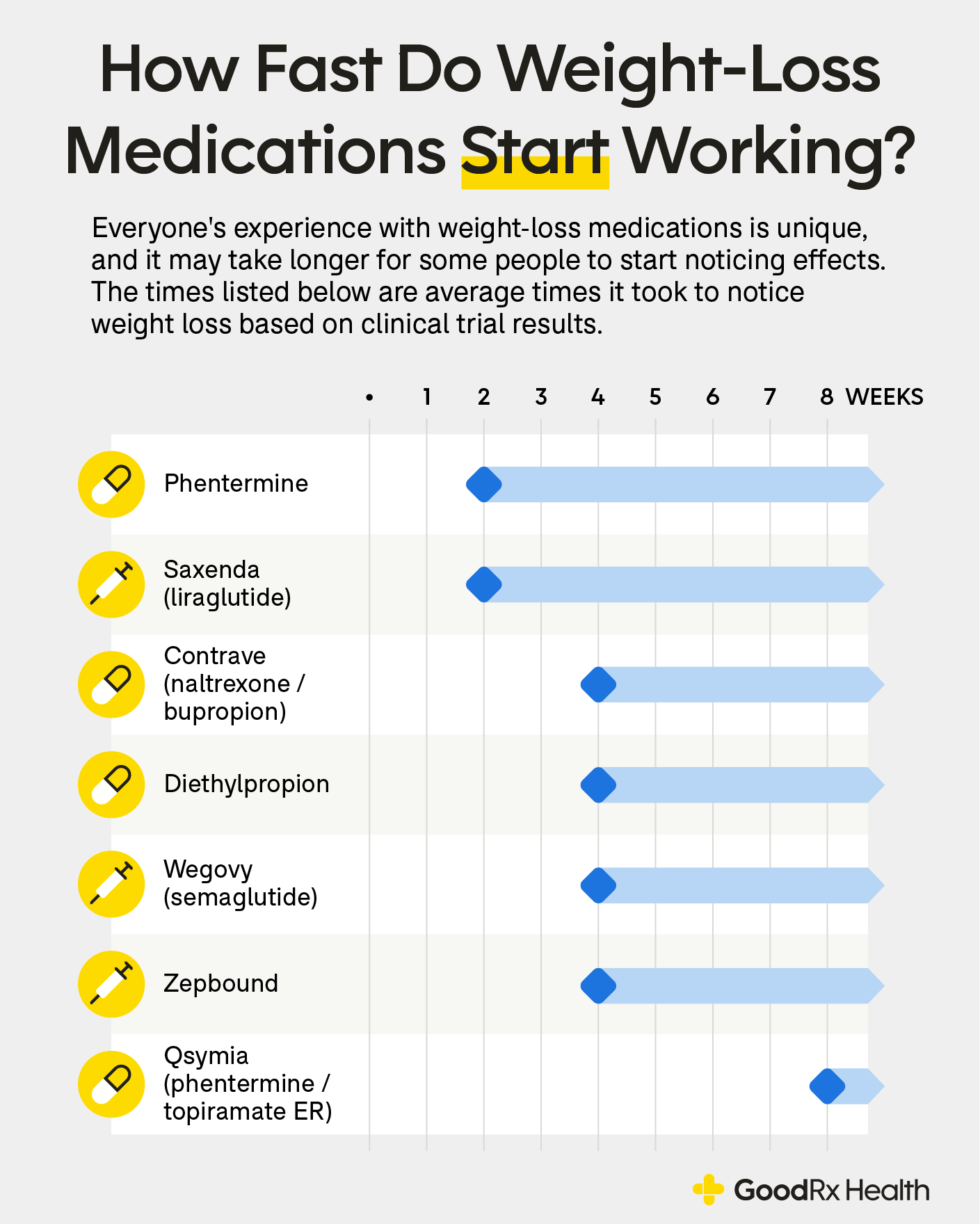How Long Do You Stay on Semaglutide for Weight Loss: Expert Guide
The length of time to stay on Semaglutide for weight loss varies. It depends on individual goals and responses.
Semaglutide is a medication that helps with weight loss. Many people use it to shed extra pounds. But how long should you stay on it? This is a common question. The answer isn’t the same for everyone. Doctors consider several factors.
They look at your progress and health. They also check how well you tolerate the drug. Understanding the duration of Semaglutide treatment is important. It helps in planning your weight loss journey. In this post, we will explore the typical timelines and what to expect. This will guide you in making informed decisions about your treatment.
Semaglutide Basics
Understanding how long you stay on semaglutide for weight loss involves first knowing what semaglutide is and how it works. This section will cover the basics of semaglutide, including what it is and its mechanism of action.
What Is Semaglutide?
Semaglutide is a medication used to treat type 2 diabetes and for weight management. It is a GLP-1 receptor agonist, which means it mimics the hormone GLP-1 (glucagon-like peptide-1). This hormone plays a role in blood sugar control and appetite regulation. Semaglutide is available under different brand names, such as Ozempic and Wegovy. It is administered through a subcutaneous injection, typically once a week. The dosage may vary depending on the individual’s needs and the doctor’s prescription. Key points about semaglutide:
- Used for type 2 diabetes and weight management
- GLP-1 receptor agonist
- Administered via subcutaneous injection
- Dosage varies per individual
Before starting semaglutide, it is essential to consult with a healthcare provider. They will determine the appropriate dosage and monitor any potential side effects. Common side effects can include nausea, vomiting, and diarrhea, which often decrease over time.
Mechanism Of Action
Semaglutide works by mimicking the GLP-1 hormone, which has several effects on the body:
- Increases Insulin Secretion: Semaglutide stimulates the pancreas to release more insulin when blood sugar levels are high. This helps lower blood sugar levels.
- Decreases Glucagon Secretion: It reduces the amount of glucagon, a hormone that increases blood sugar levels. Lower glucagon levels help maintain better blood sugar control.
- Slows Gastric Emptying: Semaglutide slows down the rate at which food leaves the stomach. This helps you feel full longer, reducing overall calorie intake.
- Reduces Appetite: By acting on brain receptors, it helps reduce hunger and food cravings.
These combined effects make semaglutide an effective tool for both blood sugar control and weight loss. Studies have shown significant weight loss in individuals using semaglutide for extended periods. However, the duration of use depends on individual health goals and medical advice. Overall, semaglutide not only helps in managing diabetes but also supports weight loss by reducing appetite and increasing feelings of fullness.

Weight Loss Journey
Considering how long to stay on Semaglutide for weight loss can be confusing. Your weight loss journey with this medication will vary based on individual factors and goals. Understanding what to expect at different stages can help you stay motivated and achieve your desired results.
Initial Expectations
Starting Semaglutide for weight loss often comes with high hopes and many questions. During the first few weeks, it’s essential to understand what you might experience:
- Weight Loss Rate: Many users report losing 3-5% of their body weight in the first few months.
- Side Effects: Initial side effects may include nausea, vomiting, or diarrhea. These often decrease over time.
- Dosage Adjustments: Your healthcare provider may start you on a lower dose and gradually increase it. This helps minimize side effects.
Here’s a brief table summarizing initial expectations:
| Time Frame | Expected Weight Loss | Common Side Effects |
|---|---|---|
| First Month | 1-2% of body weight | Nausea, vomiting, diarrhea |
| 3 Months | 3-5% of body weight | Reduced side effects |
Long-term Goals
Achieving long-term goals with Semaglutide involves consistency and patience. Here are key points to consider:
- Weight Maintenance: After reaching your weight loss goal, maintaining it is crucial. This may involve staying on a maintenance dose.
- Healthy Habits: Incorporating healthy eating and regular exercise can enhance and sustain weight loss.
- Regular Check-ups: Regular visits to your healthcare provider ensure the medication is working effectively and safely.
Long-term planning often includes setting realistic milestones:
- First 6 months: Aim for 10-15% weight loss.
- 1 Year: Maintain weight loss and focus on overall health improvements.
- Beyond: Continue healthy habits and adjust medication as needed.
Staying committed to your weight loss journey with Semaglutide can lead to significant and lasting results. It’s about more than the medication; it’s about creating a sustainable, healthy lifestyle.
Duration Of Treatment
Semaglutide is a medication that helps with weight loss. It is important to understand the duration of treatment when using Semaglutide. How long you stay on this medication can vary. Let’s explore the recommended timeframes and factors influencing the duration of treatment.
Recommended Timeframes
The recommended timeframes for taking Semaglutide can depend on various factors. Typically, doctors may suggest a treatment period of:
- 12 Weeks: Initial assessment phase to see how well the medication works for you.
- 6 Months: A more extended period to observe significant weight loss and health benefits.
- 1 Year: For sustained weight loss and to help maintain new weight levels.
These timeframes provide a general guide. Your doctor will tailor the treatment based on your needs. It is crucial to follow their advice closely. Regular check-ins with your healthcare provider are essential. They will monitor your progress and adjust the treatment as needed. In some cases, longer use may be required. This helps in maintaining weight loss and avoiding weight regain. Always communicate with your healthcare provider about your progress and any side effects.
Factors Influencing Duration
Several factors can influence how long you stay on Semaglutide:
- Individual Response: Each person reacts differently to the medication. Some may see quick results, while others need more time.
- Weight Loss Goals: Your target weight loss can impact the treatment duration. Larger goals may require longer use.
- Side Effects: Any adverse reactions might necessitate a change in dosage or discontinuation.
- Medical History: Past and current health conditions play a role. Those with certain medical issues may need longer monitoring.
- Lifestyle Changes: Incorporating diet and exercise can affect how long you need the medication.
Regular follow-ups with your healthcare provider are vital. They will assess these factors and make necessary adjustments. Staying informed about your treatment plan ensures better outcomes. It also helps in managing expectations and achieving your weight loss goals.
Monitoring Progress
Semaglutide is a medication used for weight loss. Monitoring progress is crucial to ensure effective results and safety. Tracking weight loss and assessing side effects are key components of this process.
Tracking Weight Loss
Tracking your weight loss while on Semaglutide involves regular check-ins and detailed monitoring. This helps to ensure that you are losing weight at a healthy and sustainable rate. Here are some methods to track your progress:
- Weekly Weigh-Ins: Weigh yourself at the same time each week. This provides consistent data points to monitor your weight loss trend.
- Body Measurements: Measure your waist, hips, and other areas. This helps to track changes that the scale might not show.
- Photographic Evidence: Take progress photos every month. Visual records can be motivating and revealing.
- Food Diary: Document your daily food intake. This helps to identify eating patterns and make necessary adjustments.
Additionally, maintaining a record of your weight loss journey can be beneficial. You can use a simple table like the one below: Add more rows as needed
| Week | Weight (lbs) | Waist (inches) | Hips (inches) |
|---|---|---|---|
| 1 | 200 | 40 | 45 |
| 2 | 198 | 39.5 | 44.5 |
Assessing Side Effects
While Semaglutide is effective, monitoring for side effects is essential. Side effects can vary and it’s important to be aware of them:
- Gastrointestinal Issues: Nausea, vomiting, and diarrhea are common. Keep a symptom diary to track these issues.
- Fatigue: Feelings of tiredness may occur. Note any changes in your energy levels.
- Headaches: Document the frequency and intensity of headaches.
- Changes in Appetite: Semaglutide may alter your appetite. Track these changes in your food diary.
If side effects are severe or persistent, consult your healthcare provider. They may adjust your dosage or recommend other interventions. Here’s a simple table to track side effects: Add more rows as needed
| Week | Side Effect | Severity (1-10) | Notes |
|---|---|---|---|
| 1 | Nausea | 4 | Occurs in the morning |
| 2 | Fatigue | 3 | More noticeable in the afternoon |
Regularly assessing side effects ensures your safety and comfort while on Semaglutide.
Diet And Lifestyle Changes
Semaglutide is a medication used for weight loss, but it works best with diet and lifestyle changes. These changes help you get the most out of the medication and keep the weight off in the long run. Let’s explore the importance of nutrition and incorporating exercise in your weight loss journey.
Importance Of Nutrition
Good nutrition is key to successful weight loss with Semaglutide. Eating the right foods helps you feel full and gives you energy. It also helps you avoid cravings and unhealthy snacks. Here are some tips for a healthy diet:
- Eat more vegetables: Vegetables are low in calories and high in fiber. They help you feel full without adding extra calories.
- Choose whole grains: Whole grains like brown rice and whole wheat bread are better than refined grains. They keep you full longer.
- Lean proteins: Include lean proteins like chicken, fish, beans, and tofu. They help build muscle and keep you satisfied.
- Limit sugar and processed foods: These foods can add extra calories without any nutrients. They also cause blood sugar spikes and crashes.
- Stay hydrated: Drinking water helps control hunger and keeps you hydrated. Aim for at least 8 glasses a day.
Here is a sample table of healthy food choices:
| Food Group | Healthy Choices |
|---|---|
| Vegetables | Spinach, broccoli, carrots |
| Fruits | Apples, berries, oranges |
| Grains | Oats, quinoa, whole wheat bread |
| Proteins | Chicken breast, salmon, black beans |
| Dairy | Low-fat yogurt, skim milk, cheese |
Incorporating Exercise
Exercise is important for weight loss and overall health. It helps burn calories, build muscle, and boost your mood. Combining Semaglutide with regular exercise can help you reach your weight loss goals faster. Here are some ways to include exercise in your routine:
- Start with walking: Walking is a simple way to get moving. Aim for at least 30 minutes a day.
- Try strength training: Lifting weights or using resistance bands builds muscle. Muscle burns more calories than fat.
- Join a class: Group classes like yoga, Zumba, or cycling can be fun. They also keep you motivated.
- Stay active throughout the day: Take the stairs, park further away, or do some stretches. Every bit of movement counts.
Here is a sample weekly exercise plan:
| Day | Activity | Duration |
|---|---|---|
| Monday | Walking | 30 minutes |
| Tuesday | Strength Training | 30 minutes |
| Wednesday | Yoga | 30 minutes |
| Thursday | Walking | 30 minutes |
| Friday | Strength Training | 30 minutes |
| Saturday | Cycling | 30 minutes |
| Sunday | Rest | – |
Making these diet and lifestyle changes can help you succeed with Semaglutide. They will also help you maintain your weight loss and improve your health.

Potential Side Effects
Introduction paragraph about How Long Do You Stay on Semaglutide for Weight Loss and Potential Side Effects…
Common Reactions
Using Semaglutide for weight loss can bring many benefits. Yet, some people may experience side effects. Knowing these helps in managing them better. Here are some common reactions:
- Nausea: Many users report feeling nauseous, especially at the start.
- Diarrhea: Loose stools or frequent bowel movements can occur.
- Vomiting: Some may experience vomiting, often linked with nausea.
- Constipation: On the flip side, some users face constipation.
- Abdominal pain: Pain or discomfort in the stomach area is another reported symptom.
These reactions are often mild and temporary. They usually happen when starting the treatment or adjusting the dose. Users should report any severe or persistent symptoms to their healthcare provider. Understanding these side effects can help in making informed decisions about the treatment.
Managing Adverse Effects
Dealing with side effects is crucial for a smooth treatment journey. Here are some tips to manage adverse effects:
- Start slow: Begin with a lower dose to minimize reactions. Gradually increase the dose as advised by your doctor.
- Stay hydrated: Drinking plenty of water can help with nausea and vomiting.
- Eat small meals: Small, frequent meals can reduce stomach discomfort.
- Monitor diet: Avoid fatty, spicy, or rich foods that can worsen nausea.
- Use over-the-counter remedies: Medications like antacids can help manage symptoms. Always consult your doctor before taking any additional medication.
If side effects persist, it’s important to talk to your healthcare provider. They may adjust your dose or suggest alternative treatments. Managing side effects effectively ensures you can continue benefiting from Semaglutide for weight loss.
After Treatment Considerations
Semaglutide has shown promising results for weight loss. But what happens after you stop taking it? Understanding the after treatment considerations is crucial. These steps help maintain your progress and prevent weight regain.
Transitioning Off Semaglutide
Transitioning off Semaglutide requires careful planning. Your doctor will guide you through this process. This step is important to avoid sudden changes in your body. Here are some key points to consider:
- Gradual Reduction: Do not stop Semaglutide abruptly. Gradually reduce your dosage under medical supervision.
- Monitor Your Body: Keep track of any changes in your weight, appetite, and energy levels. Report any concerns to your healthcare provider.
- Diet Adjustments: Adjust your diet to maintain weight loss. Focus on a balanced diet rich in vegetables, fruits, lean proteins, and whole grains.
- Exercise Routine: Maintain a regular exercise routine. Aim for at least 150 minutes of moderate exercise each week.
Communication with your healthcare provider is essential during this phase. They can offer personalized advice and support. Remember, the goal is to maintain the positive changes achieved while on Semaglutide.
Preventing Weight Regain
Preventing weight regain involves lifestyle changes. These changes must be sustainable in the long term. Consider the following strategies:
- Mindful Eating: Pay attention to your hunger and fullness cues. Avoid eating out of boredom or stress.
- Regular Check-ins: Schedule regular follow-up appointments with your doctor to monitor your progress.
- Support System: Engage with a support group or a dietitian. They can provide motivation and accountability.
- Healthy Habits: Incorporate healthy habits like drinking plenty of water and getting enough sleep.
A balanced lifestyle is key to preventing weight regain. Here is a simple table to summarize some of these tips:
| Strategy | Details |
|---|---|
| Mindful Eating | Eat slowly, savor each bite, and listen to your body’s signals. |
| Regular Check-ins | Keep track of your progress and adjust your plan as needed. |
| Support System | Join a group or work with a professional for guidance. |
| Healthy Habits | Stay hydrated and get enough rest to support your body. |
These strategies help you maintain your weight loss and overall health. Stay committed to your new lifestyle for lasting results.

Consulting Healthcare Providers
When using Semaglutide for weight loss, consulting healthcare providers is crucial. They can guide you on how long to stay on the medication. This ensures safe and effective weight loss. Healthcare providers offer personalized advice based on your health status. This can make a big difference in your weight loss journey. Let’s explore when to seek advice and how to build a support system.
When To Seek Advice
Consulting healthcare providers before and during your Semaglutide treatment is important. They can help you understand if this medication is right for you. Here are some situations when you should seek their advice:
- Before starting Semaglutide: Your doctor will evaluate your health condition. They will review your medical history and any other medications you are taking.
- Experiencing side effects: If you notice any side effects, contact your healthcare provider. They can adjust your dosage or suggest ways to manage these effects.
- Monitoring progress: Regular check-ups can help track your progress. Your doctor can assess if Semaglutide is helping you achieve your weight loss goals.
- Adjusting treatment: Sometimes, the dosage may need adjustments. Your doctor will guide you on how to do this safely.
Keeping regular appointments ensures your treatment is effective and safe. It helps in making any necessary changes to your dosage or treatment plan.
Building A Support System
A strong support system can enhance your weight loss journey. This includes healthcare providers, family, and friends. Here are some ways to build a solid support system:
- Regular check-ins with your doctor: Schedule regular appointments to discuss your progress and any concerns.
- Join a support group: Look for local or online weight loss support groups. Sharing experiences and tips can be motivating.
- Communicate with family and friends: Let them know about your weight loss goals and how they can support you. Encouragement from loved ones can boost your motivation.
- Work with a dietitian: A dietitian can help you create a healthy eating plan that complements your medication.
Having a support system keeps you motivated. It provides encouragement and practical advice. Surround yourself with people who understand your goals and are willing to help you achieve them.
Frequently Asked Questions
How Long Is Semaglutide Treatment For Weight Loss?
Semaglutide treatment duration for weight loss can vary. Typically, it lasts several months to a year. Consult your healthcare provider for personalized advice.
Can You Stop Semaglutide After Weight Loss?
Yes, you can stop semaglutide after achieving weight loss goals. However, stopping should be under medical supervision to avoid potential weight regain.
Are There Side Effects Of Long-term Semaglutide Use?
Long-term use of semaglutide can have side effects. Common ones include nausea and vomiting. Discuss risks with your healthcare provider.
What Happens After Stopping Semaglutide?
After stopping semaglutide, some people may regain weight. Maintaining a healthy lifestyle is crucial to sustain weight loss benefits.
Conclusion
Finding the right duration on Semaglutide is crucial for weight loss success. Talk with your doctor to create a plan tailored to your needs. Regular check-ins help monitor progress and adjust doses. Patience and consistency are key. Remember, every journey is unique.
Stay committed and follow medical advice. Semaglutide can be a helpful tool in your weight loss journey. Stay positive and focused on your goals. Your health matters most.




